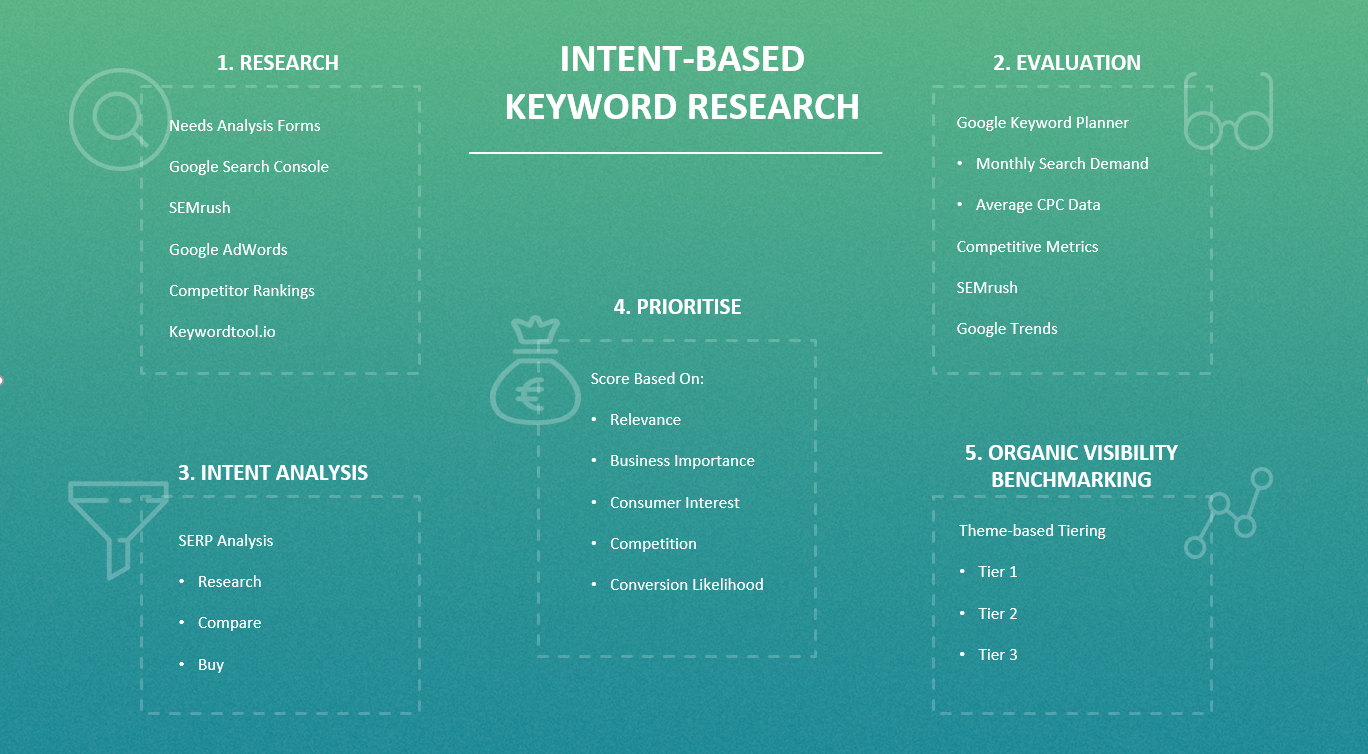By Luke Fitzgerald on 20 Sep 2018
Welcome to the Voice Search era?

Since the advent of Siri (2011), Alexa (2014), and Google Home (2016), voice search is now an omnipresent choice for consumers both at home and on the move via our mobile devices, so it’s about time we discussed the merits of voice and whether your brand should be round-tabling the topic as you prepare for this brave new voice-led era.
This wouldn’t be a reputable article on voice search without a nod to that obligatory ’50% of all searches will be voice searches by 2020’ Comscore stat that’s been bandied about the digital marketing community for the past couple of years. Well, that deadline’s a mere fourteen months from the time of writing and the reality is we’re nowhere near that level just yet, at least on this side of the Atlantic, and the vast majority of the searches being conducted via voice are not the bottom-of-funnel, conversion-ripe queries we help convert on a daily basis.
The actual origins of that stat have recently been called into question during an amazing presentation (link to the deck) by Aleyda Solis at this year's Learn Inbound event in Dublin whereby she references a 2014 interview with Fast Company with Chinese search giant Baidu's chief nerd and former Googler, Andrew Ng in which he states "In five years time at least 50% of all searches are going to be either through images or speech".
Note that the 'images or' element of that statement has fallen victim to a case of 'Chinese whispers' (unintentional pun too good to snip) over the years and we're now just left with the voice bit. We feel that the images part is actually quite significant with the emergence of Amazon Visual Search and Google Lens offering truly transformational smartphone technology whereby users can simply snap an image of something they like and they'll be served the same or similar product offerings to buy - and that's certainly far more advanced when it comes to conversion potential at present.
Regardless of the precise stats and when they may or may not come to fruition, it's clear that voice is front and centre of many brand's minds and with good reason; when we ask Google questions, it gives us answers; and with that, there's a valid enthusiasm to become the answer for each specific question which is pertinent to our business objectives. We're now in the era of 'answer engine optimisation' - yep, that's a thing - and whether we like it or not, we need to factor it into all future conversations around search beyond the realm of lists of blue links on a screen.

As a merry band of integrated SEOs, content marketers, PPCers, social media promoters, and data-driven analytics disciples here at Wolfgang, we know there’s some value to be had in embracing voice search to its full potential, but the fact of the matter is Google themselves just aren’t there yet in terms of monetising voice search for paid ads as they've stated themselves and the vague stats we're seeing in Google Analytics, Google Ads and Search Console around 'OK Google' and related voice search terms (with no specific device-type feature for voice yet), the stats don’t support the notion that it’s worth investing heavily in right now versus say, just focusing on building ‘a fast website with great content that engages an audience and converts well’ just yet.
Having put it to the r/bigseo community on Reddit in search of validation and to keep our cynicism in check around voice search, it seems we're not alone in our thinking that it's no silver bullet, but you'd be mad to ignore it, looming large in the background like that uninvited uncle waiting for his opportunity to bore you with how well Liverpool are doing this season at your kid's Christening party - you're gonna have to have the conversation at some point!
Some Practical Voice Search Optimisation Approaches
The first step in any effective digital business strategy has been, and always will be, creating the ability for the marketplace to easily find your products and services. Search Engine Optimisation has been around for twenty years now, and Google’s dominance in global information search means that if your products and services can be found via Google, you’re in with a fighting chance of being found within your competitive niche.
Al's spoken in the past on Wolfgang Bites about how voice won't kill search, but it will help evolve it in line with consumers' relationships with the technology the welcome into their homes, hailing them as 'the great 21st Trojan Horse' and something to bear in mind as we realise we're really only scratching the surface with how far voice will penetrate our lives and how we interact with the web:
With sales of Google Home and Amazon Echo devices through the roof and rising and these robotic voice assistants invading our homes slowly but surely, it’s definitely something to keep an eye on, and embrace if you’ve got the additional resource and don’t mind a bit of ‘suck it and see’.
As much as a branding exercise more than anything for the time being, while there are definitely some incremental gains to be had from organic search via voice, there’s also some first-mover advantage to be had in crafting a smart voice search strategy, but if you’re looking for a pot of gold at the end of this particular polychromatic rainbow, be prepared to wait - at least until the Big Boys of our search and eCommerce landscape have figured out how to convert users via voice; there’s still plenty of work to be done in order for it to be taken too seriously by major eCommerce brands.
So, how can you ensure your customers find you when whipping out their mobiles and shouting ‘OK Google’ or making unreasonable demands of Alexa from the comfort of their own home?! It’s actually not that complicated, just yet, and we reckon the following four main voice search approaches will position your website for improved search ranking and solid traction once this thing lights up!
- Improve on-site SEO
- Create relevant content
- Google Actions and Alexa Skills
- ‘Speakable’ Schema markup
The first two items relate to how voice search works right now; just get back to basics and build strong structural SEO and create engaging, well-informed content with the aim of obtaining great rankings and hopefully, some featured snippets which these readers are paraphrasing or reading out verbatim to users, while the latter two focus more on emerging technology and how to leverage what's still pretty embryonic practices to help steer your business in the right direction for being truly voice search-ready.
Quality SEO -> Featured Snippet Strategy
When ranking on Google’s Search Engine Results Pages (SERPs), if your website provides a clear and effective answer to a user’s query, it has a chance of appearing at ‘position zero’. This is the featured snippet box, usually a piece of text from your site that shows a quick summary of the required answer, and as such is super attractive for voice search users to click on.
If you can get it, the featured snippet lets you jump over the organic search results and place at the top, directly below the paid/advertised results. It shows that Google finds your site the most useful for that particular query. By effectively trouncing the competition you could see your site traffic jump 20-30%.
So, how exactly do you get a featured snippet?
Well, we wish we had the exact answer to that one, but no one does really, and Big G can move the goalposts at any given point in time, as we know! A featured snippet, or 'position zero' is essentially a reward for putting in the time and effort to craft a quality SEO structure and amazing content on your site. Do your homework, find the appropriate target keywords and develop your site content to reflect a natural flow of the words that relate to the questions users will pose if they’re looking for your products or services.
Our five-step intent-based keyword research methodology is always a useful starting point in any featured snippet strategy:

Once you've got the keywords you want to work an optimisation strategy around, use FAQs as these highlight such questions overtly on your site and may provide a direct match with queries. Also, structure your site pages clearly so that Google will find it simpler to determine keyword structures that count. The way users voice their queries can change. By retaining the right context or ‘flavour’ on your site, you help the search engine to understand the semantics of the request.
If and when you achieve a snippet, analyse it and use it to inspire your other content to ensure your site evolves in the right direction! This approach has served us well to date, and when we achieve a featured snippet around a given topic, we often see a 'snowball effect' in which many other snippets start appearing for related terms, leading to SERP - and by extension - voice search domination through a series of featured snippets, which has directly contributed to a couple of our most successful award-winning campaigns for clients in recent years.
Google Actions for Google Assistant
Android is the world’s leading mobile operating system, accounting for 88% of global market share in 2018. And Google Assistant is poised to be available on 95% of those systems, from phones to cars and more, increasing the use case for voice search dramatically.
Actions is a developer platform that allows simple software creation to increase Assistant’s abilities, helping it match voice query intent ideally with your product. This is much like using keywords in text search. However, unlike regular touch-enabled apps on your phone, Actions lets users interact with Assistant with more natural speech. This can be a simple Direct Action information enquiry or a back and forth Conversation Action. And of course, optimising your Actions increases your potential for discovery.
Using developer programmes such as WordLift, your developer team can construct a semantic graph (a knowledge base that relates to your website content) that structures data effectively to link up with relevant voice search queries through your Actions. In this way, you can target, much like quality text-based SEO, the kinds of natural questions people will voice when attempting to look for your products. Essentially, this is building a bot to service voice search needs.
The reality is that this is how most people are interacting with their Google Home devices at present (props to our dear friend Wil Reynolds for this clip at Learn Inbound last week - it seems we really took a lot from that conference!)
Voice will inevitably be normalised over time, sure who could've predicted we'd now be glued to smartphones with all the answers to the world's problems in our pocket - bar Penny from Inspector Gadget, of course - a mere two decades ago?
Alexa Skills for Amazon Echo
Similarly, Skills are the ‘apps’ of the Amazon ecosystem. Although Assistant is building market share, Alexa came first and still owns the greater slice of the home use market with 67% at the start of the year.
A big advantage of Skills is that they have been developed with simplicity in mind. You don’t necessarily need to be a developer, and with Blueprints, you can easily customise functions and responses or share ideas with other users to find out what works best for your particular needs. Creating a specific audio or vocal ‘signature’ that makes your brand recognisable means that user voice search can propel your products to the top of web search listings.
Many voice apps (Skills) are currently more about consumer integration versus actually bringing them to the point of sale. Understandably, it is about the conversation as this technology starts to mature and explore ways to capitalise on voice search. However, this also means that early adopters may develop leading methods to reach the huge Alexa marketplace.
Speakable Schema Markup
This much-anticipated new Schema feature is currently in beta phase, limited to Home devices within the USA, so it may be subject to change. However, early indications are it's an extremely important evolution in the Google Assistant/Home system as it will specify which content to read aloud.

The way Google is testing recognition for speakable Schema is by deploying an algorithm, currently only with news content, that works to precisely define the spoken content via a new structured data markup. If/when this functionality is broadened beyond news content to web pages, it could define the future direction of the speakable attribute of how consumers interact with the web.
Simply put, it’s worth keeping tabs on this development. Early adopters may find that due diligence to achieve the alignment of their website content with the direction Google takes will benefit them.
The Wolfgang Essential Takeaway
Voice search is undoubtedly a natural evolution of how consumers will use both home-based and mobile technologies to find specific content online. However, whether that voice interaction entails direct shopping, or not, is a bigger question. Voice shopping only comprises 2% of the total activity registered on Amazon’s Alexa, the vast portion of interaction being for eliciting answers to information queries that are nowhere near the rim of any senblance of a monetisable funnel - think 'call mom', 'what's the weather like in Mullingar?' and 'play Baby Shark' - and that remains the key challenge for us digital marketers when it comes to voice.
Google maintains that 20% of mobile queries are voice searches. Our relationship with our devices is constantly evolving, and as such it makes sense for companies and brands to allocate resources to the optimisation of their content structure to match the semantic needs of tomorrow.
By following solid SEO best practices and developing well-considered, clearly-structured digital content, ‘cleaner’, 'faster', and just darn 'better' websites will help search technologies make optimal use of voice queries across all the key providers (Google, Amazon et al and we're sure even Bing will get there eventually!)
While voice search is not currently the most critical shift in digital marketing, it makes sense to begin your strategy to optimise your website for voice search, while at the same time, considering ‘app’ development across the Assistant/Home and Alexa platforms to position your brand for greater discovery as voice search matures.




